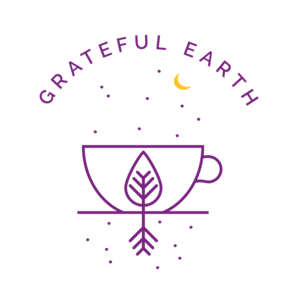How to Incorporate These Herbs into Your Daily Routine
Herbs have been used for centuries to treat and prevent a wide range of health issues. From boosting immunity to reducing inflammation, herbs offer a natural and effective way to promote overall health and wellness. But with so many herbs out there, it can be challenging to know which ones have the most health benefits. In this article, we'll explore the top 10 healthiest herbs and how to incorporate them into your daily routine.
What Herbs Have the Most Health Benefits?
-
Turmeric: Known for its anti-inflammatory and antioxidant properties, turmeric has been used for centuries to treat a wide range of health issues, including arthritis, heart disease, and cancer.
-
Ginger: Ginger is another powerful anti-inflammatory herb that has been shown to improve digestion, reduce muscle pain, and boost immunity.
-
Garlic: Garlic is known for its antibacterial and antifungal properties, making it an effective natural remedy for infections. It's also been shown to help reduce blood pressure and improve heart health.
-
Echinacea: Echinacea is a popular herb used to boost the immune system and reduce the severity and duration of cold and flu symptoms.
-
Ginseng: Ginseng has been used for centuries to improve energy levels, reduce stress, and enhance cognitive function.
-
Milk Thistle: Milk thistle is a powerful liver tonic that has been shown to help detoxify the liver and protect it from damage.
-
Ashwagandha: Ashwagandha is an adaptogenic herb that has been shown to help reduce stress, improve mood, and boost immunity.
-
Holy Basil: Holy basil, also known as tulsi, is a powerful antioxidant herb that has been shown to reduce inflammation, lower blood sugar levels, and improve heart health.
-
Chamomile: Chamomile is a natural sedative that has been used for centuries to promote relaxation and improve sleep quality.
-
Peppermint: Peppermint is a natural digestive aid that has been shown to reduce bloating, gas, and indigestion.
What is the Best Herb to Take Daily?
While all of the herbs listed above have significant health benefits, one herb that stands out as the best to take daily is turmeric. Its anti-inflammatory and antioxidant properties make it a potent natural remedy for a wide range of health issues. You can add turmeric to your diet by using it in cooking, taking it in supplement form, or drinking it as a tea.
Which Herb Contains the Most Nutrients?
When it comes to nutrient density, one herb that stands out is parsley. This often-overlooked herb is packed with vitamins, minerals, and antioxidants, including vitamins A, C, and K, folate, iron, and potassium.
What Herbs are Superfoods?
Superfoods are foods that are particularly nutrient-dense and offer a range of health benefits. While there is no official definition of superfoods, some herbs that could be considered superfoods include:
-
Moringa: Moringa is a nutrient-dense herb that is rich in vitamins, minerals, and antioxidants. It has been shown to help reduce inflammation, lower cholesterol levels, and improve heart health.
-
Amla: Amla, also known as Indian gooseberry, is a potent antioxidant herb that has been shown to reduce inflammation, improve heart health, and enhance cognitive function.
-
Gotu Kola: Gotu kola is a brain-boosting herb that has been shown to improve memory, reduce anxiety, and promote overall brain health.
Conclusion
Herbs are an excellent way to enhance your health and well-being. Incorporating these herbs into your diet can have a multitude of benefits, including improving digestion, reducing inflammation, and boosting your immune system. While there are countless herbs available, some stand out as the best choices for daily use, including turmeric, garlic, ginger, and green tea. It's important to note that if you're on any medications, you should consult with your doctor before adding new herbs to your diet. With a little research and experimentation, you can find the herbs that work best for you and start reaping the many benefits they offer.







